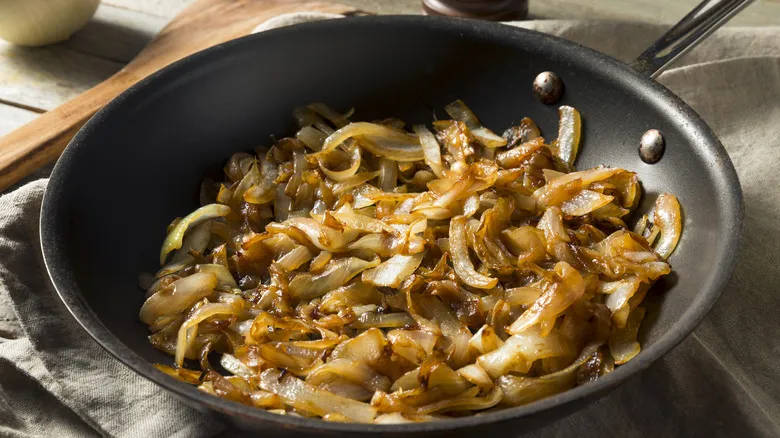How baking soda affects the caramelization process
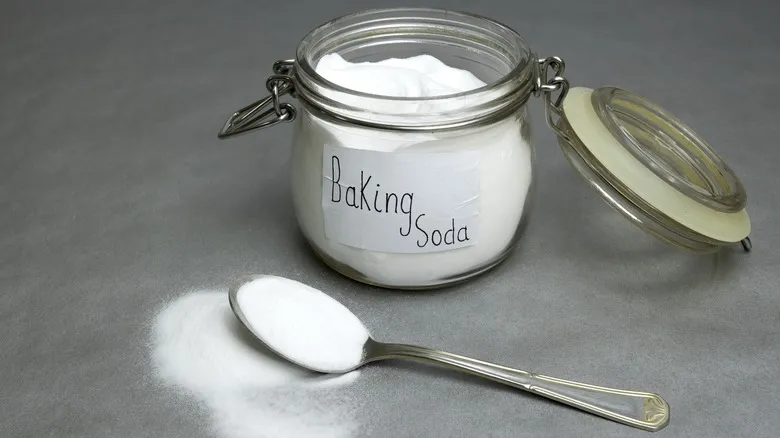
Grasping the impact of baking soda on the caramelization process requires some knowledge of food science. The Maillard Reaction is the key phenomenon that causes the browning of onions when heat is applied. As the onions cook, they release sugars that contribute to their distinctive caramel-brown hue. Additionally, the cooking process releases moisture, causing the onions to soften. Introducing baking soda into this chemical reaction accelerates both the browning and softening of the onions.
With a pH level of approximately 8, baking soda is alkaline. Even a small amount of this common kitchen ingredient alters the pH of the acidic onions, and the increased alkalinity enhances the Maillard reaction. As a result, your caramelized onions will become soft and brown in just 10 minutes, though they may also be mushier than they would be without the baking soda. If you're using the onions in a dip or spread, you might appreciate the creamier texture. However, it's important to note that baking soda also affects the flavor of the onions.
Baking soda throws off the flavor of caramelized onions
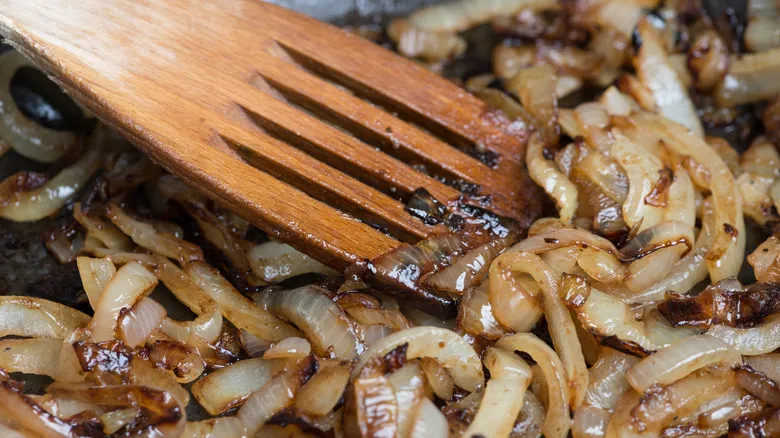
Let’s be honest: the distinct flavor of caramelized onions is what makes them worth preparing. You’re aiming for that delightful balance of savory and sweet, enriched with deep umami notes, and adding baking soda will compromise that. Onions cooked with baking soda can end up watery, mushy, overly browned, and even possess a bitter, chemical taste. Nobody wants to detect baking soda in their caramelized onions. If you want to maintain the true flavor of your onions, it’s best to avoid this time-saving trick.
While it may be tempting to adopt methods that reduce cooking time, some shortcuts can detract from the final result. Caramelizing onions does require some patience, but the process is straightforward. You can easily engage in other cooking, prepping, or cleaning tasks while your onions are on the stove, as they only need occasional stirring. The extra time invested will be worth it when your caramelized onions turn out delicious and perfectly tender.
Recommended
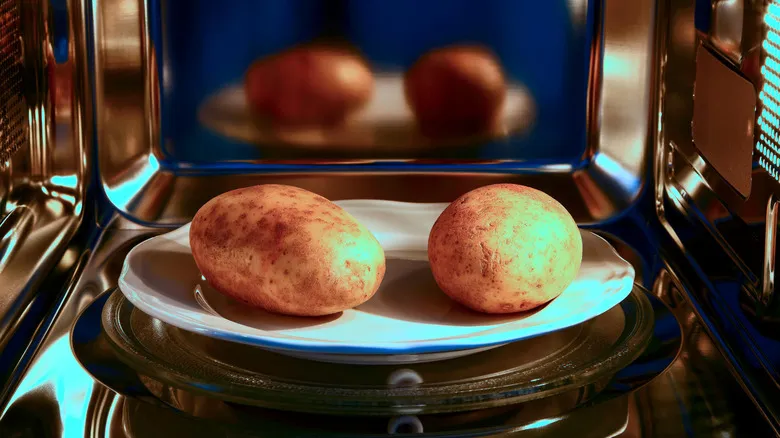
The Correct Way To Cook A Potato In The Microwave Couldn't Be Easier
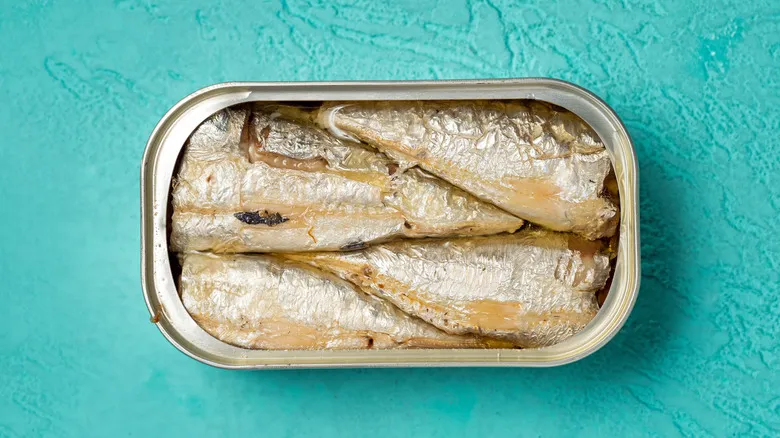
The Best Canned Sardines To Eat If You're Afraid You'll Hate Them

The Luxury Cutting Board Ina Garten And Giada De Laurentiis Swear By
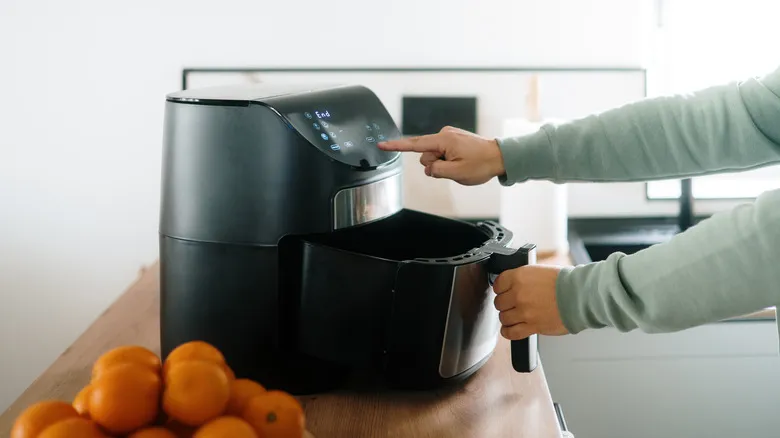
2 Steps You Should Always Take Halfway Through Air Frying Food
Next up

